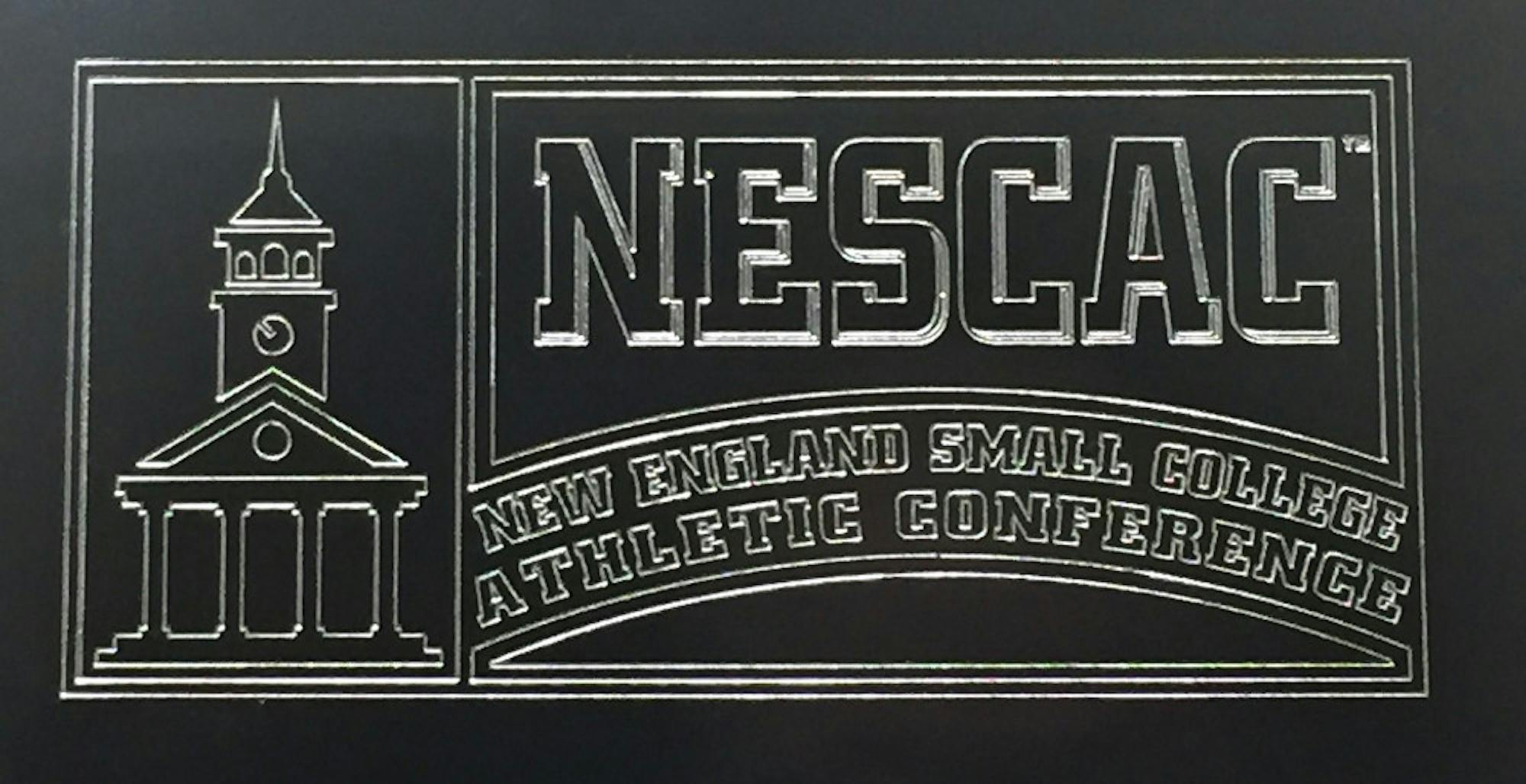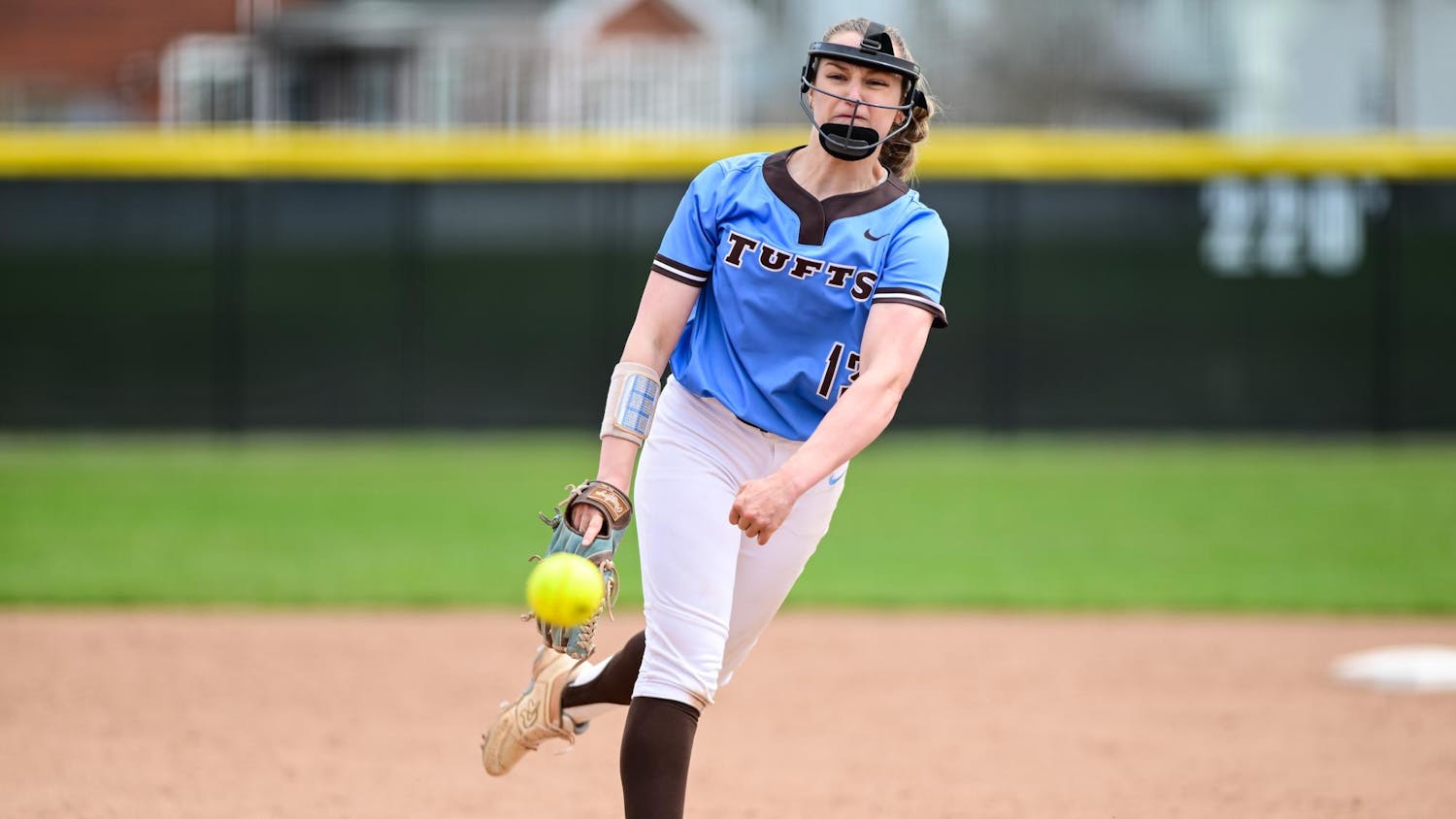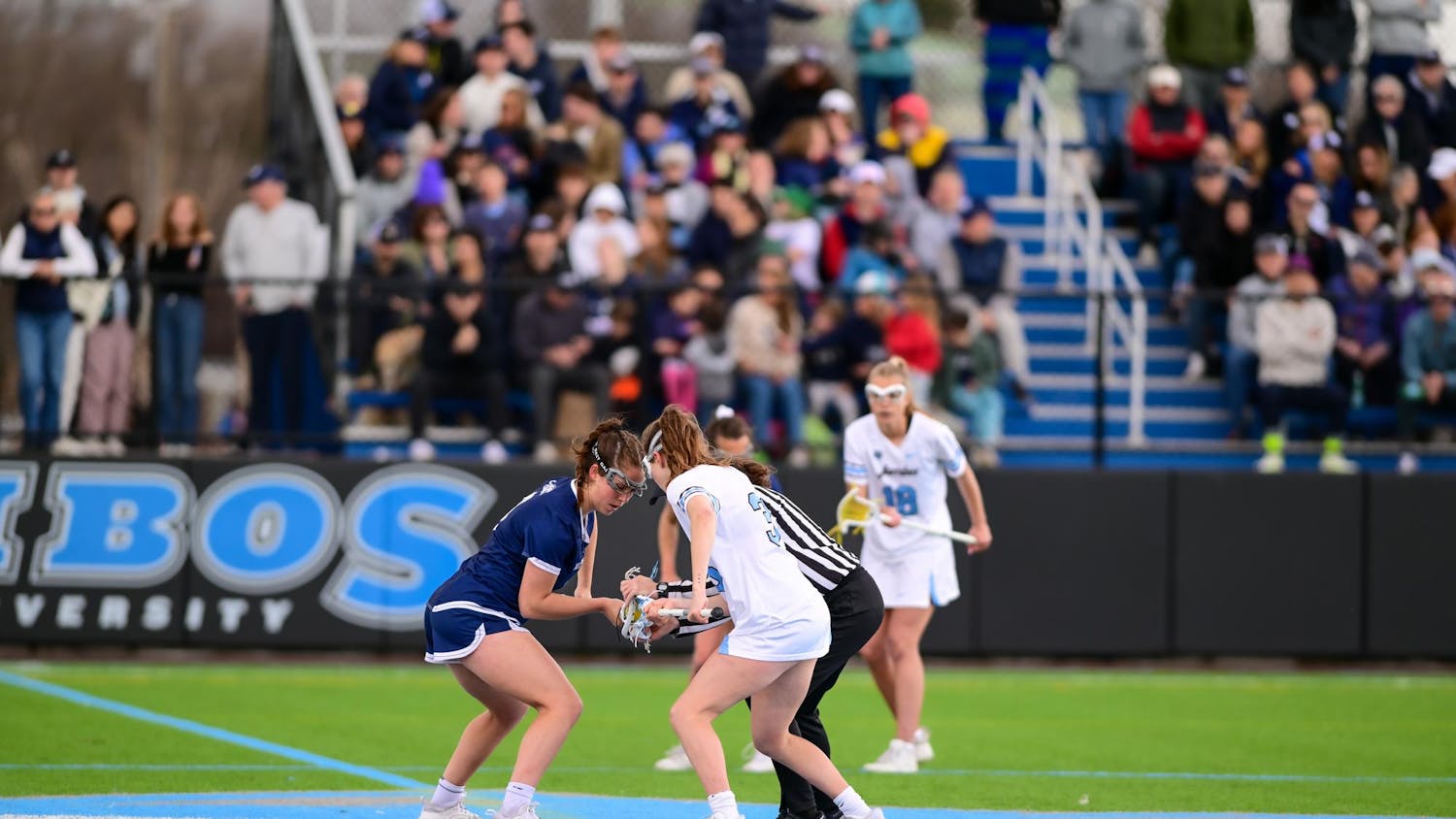After nearly a year of being sidelined, Tufts student-athletes want their sports back.
In a letter to President Anthony Monaco and the NESCAC executive committee, the Tufts Student-Athlete Advisory Committee executive board requested to play spring sports.
The letter cited the ongoing negative impact of the COVID-19 pandemic on the "emotional well-being" of student-athletes as the primary reason for the administration to consider permitting spring athletics.
If the spring 2021 season were to be canceled, student-athletes who play spring sports would lose two consecutive seasons, which would be "detrimental to the mental health" of these student-athletes in particular,the letter said. The COVID-19 pandemic has forced the NESCAC to cancel the spring 2020, fall 2020 and winter 2020–21 seasons.
The letter was written in advance of a NESCAC executive meeting last week, when administrators from member schools were meeting to discuss plans for the spring.
The NESCAC announced on Wednesday that it is continuing to evaluate the possibility of a spring season, but that “conditions will need to improve significantly” for a season to take place. A spring season would also likely be shorter than usual due to academic calendar changes at member schools, the announcement said.
Wesleyan’s Student-Athlete Advisory Committee published a similar letter, which inspired Tufts’ Student-Athlete Advisory Committee to make a statement, according to Casey Maggiore, a member of the Tufts Student-Athlete Advisory Committee executive board and a graduate student on the softball team.
Screenshots of the Tufts letter circulated on social media after the Tufts Student-Athlete Advisory Committee shared it on its Instagram account. Maggiore explained that while the reaction was mostly positive, there was some backlash because the Student-Athlete Advisory Committee executive board wrote the letter without consulting all student-athletes.
But the Student-Athlete Advisory Committee executive board felt they had to move quickly because they saw Wesleyan’s letter only two days before the NESCAC meeting.
“We had to decide what to do on a very short timeline,” Maggiore said. “In any other case, we always open it up to the floor for the Student-Athlete Advisory Committee body to vote on it. But in this case, we were under the impression that we had no time to [write the letter before the NESCAC meeting].”
Maggiore also clarified that the Student-Athlete Advisory Committee executive board understands the severity of the pandemic and wasn’t trying to make any unrealistic demands.
“We’re looking for a happy medium and that’s what we tried to convey in this letter,” Maggiore said. “We’re just trying to play under the safest conditions possible, but we also respect that if we can’t, it’s a pretty serious situation.”
Director of Athletics John Morris, reached via email, said he understood the motivation for the letter.
“We encourage our student-athletes to be engaged community members and speak up constructively and respectfully when they feel strongly about something. Because the opportunity to practice and compete is such an important part of their educational experience here at Tufts, it’s understandable that our student-athletes are advocating for a chance to play this spring,” Morris wrote.
COVID-19 cases in the NESCAC’s region will need to drop for spring sports to occur. The Tufts Student-Athlete Advisory Committee letter also said that the “risk of spreading COVID-19 is minimized” by Tufts’ testing protocols and other regulations, but previous email communications from Tufts Student Life and university medical officials have suggested that the frequent testing should not be misconstrued as “protection from COVID spread.”
The testing protocol does give university officials a good chance at identifying transmission of COVID-19 early, though, which could be a necessary safety measure for intercollegiate athletics to occur.
While most athletics have continued this school year at the NCAA Div. I level, most Div. III conferences have decided to cancel conference play in the fall and winter seasons. Tufts permitted teams to practice and work out with some restrictions in the fall until cases on campus spiked in mid-November.
The NESCAC plans to make a final decision by late February or early March, Wednesday’s announcement said. In the meantime, Tufts student-athletes will hope that they can get back on the field — in any capacity.
“They’re doing the best that they can for us,” Maggiore said about the administration. “We know that they’re fighting for us as well.”






